Better pig production with phytogenic feed additives
Phytogenics are plant derived natural bio actives with proven effects to support a profitable pig production. Their potential as natural growth promoter has been demonstrated as animal’s feed intake is stimulated. More efficient digestion and nutrient uptake result in better growth performance and improved feed conversion ratio. In this new farming reality, phytogenics can help to support a sustainable and antibiotic free livestock production. Thus, phytogenics can allow the producer to accomplish the daily growing demand for safe and sustainable livestock production practices.
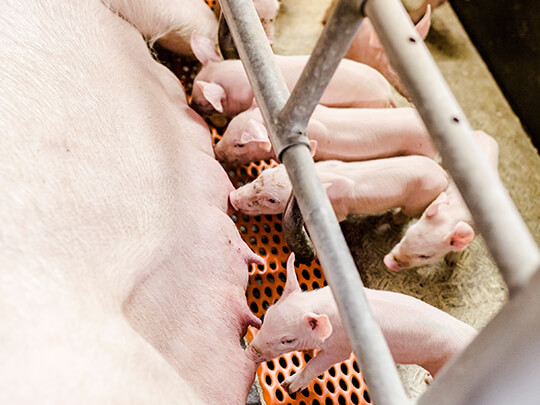
Better litter performance in sows with phytogenics
An adequate feed intake of sows during the lactation period is fundamental for a high milk production and litter performance. However, in many farms’ sows do not eat enough feed to cover the metabolic needs of milk production. As a result, the sow loses body weight, the quantity and quality of milk decreases, and piglet growth is compromised. Within the modern sows as they have become leaner sows with less body fat reserves, the loss of body weight can be equal to the loss of muscle reserves. The advantages of using phytogenic feed additives in the nutrition of sows and piglets are manifold. Studies show that phytogenics not only improve feed intake and stimulate the secretion of digestive juices, which increases nutrient utilization but have a major impact in litter birth weight improvement.
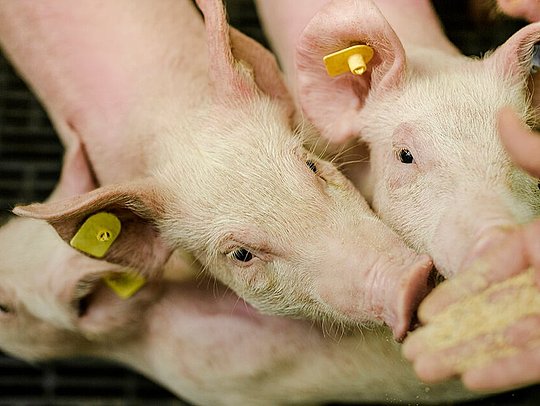
The gut as defense line against weaning challenges
Weaning is the most stressful period for a piglet and brings along unpleasant surprises which may compromise the piglet’s health. An immature digestive tract makes the piglet susceptible to bacterial pathogens, which often results in diarrhea, growth depression, anorexia and in the worst case the death of the animal. In most cases, producers and veterinarians overcome this painful period by providing antibiotics and/or zinc oxide (ZnO) as prophylactic medication to piglets. As ZnO, at medicinal dosages, will be banned in the EU by 2022, the time is right to focus on non-medical solutions for upstream piglet support.
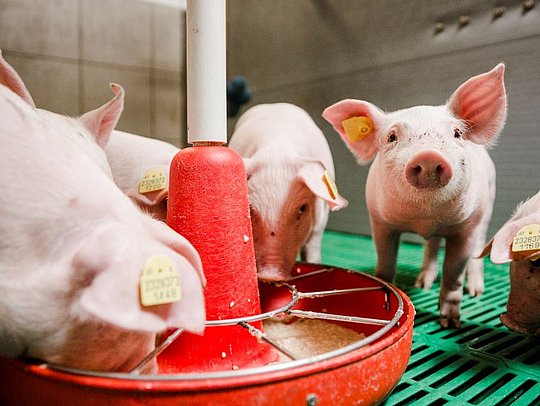
Post-weaning feed intake in piglets
The most important benefit of phytogenics is their flavor-enhancing property: Although the weaning process usually begins with a decrease in feed intake, a trial located in Belgium shows a 4.9% increase in average daily feed intake and a 4.8% increase in average daily gain with the addition of Fresta® Protect in piglets post-weaning.
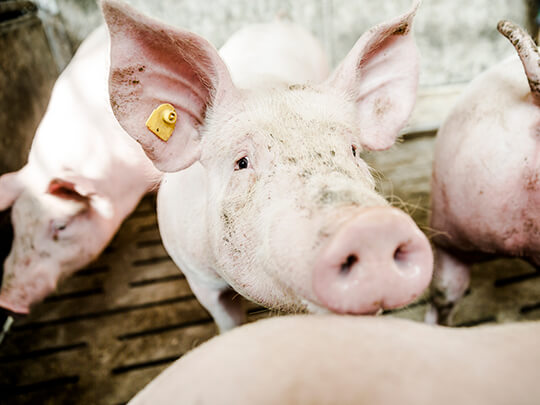
Phytogenics as natural performance enhancers in pigs
To take full advantage of healthy animals performing at their best while entering the growing-fattening phase, phytogenics are a valuable tool to sustain daily weight gains and feed efficiency. As the feed costs of the grower finisher phase (20 – 115 kg body weight) accounts for up to 70% of the total production costs, improving feed digestibility and feed conversion ratio will increase pig profitability.
Did you know?
Aromex® Pro is Delacon’s PFA based on carefully selected active substances, a blend of essential oils and saponins, perfectly aligned to the needs of growing-finishing pigs. The combination of active ingredients in this phytogenic feed additive results in higher feed intake, nutrient digestibility and retention, which leads to an improved animal growth.
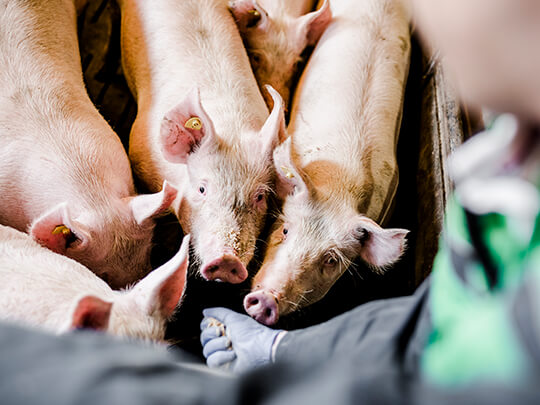
Ammonia - not just a threat to the environment
Improved feed efficiency and improved performance in pigs lead to higher profitability - the most important driver of modern pig production. However, impaired health contributes to reduced feed intake and reduces animal performance. In particular, high aerial ammonia emissions in pig farms have a negative impact on human and animal health by impairing the mucous membrane in the airways. In addition to aerial ammonia, the ammonia formed in the intestine through the degradation of undigested protein puts strain on the intestinal mucosa and liver metabolism.
Ammonia that enters the blood must be detoxified via the liver. This process is often associated with a high loss of energy. In order to maintain the profitability of pig production, it is necessary to have a holistic approach – reducing ammonia emissions is an important part of this.

Anne Oberdorf
Anne has always been fascinated by the unknown, the diversity and beauty of nature. Her love for nature brought her to Delacon in 2018 after studying agricultural sciences, where she worked as Technical Communications Manager and later as Product Manager Aquaculture. Since February 2021, she has been taking a new, natural career path outside of Delacon.










